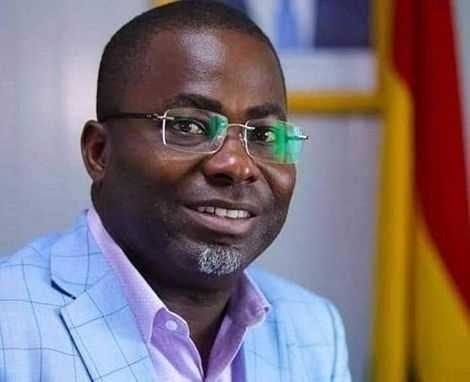Hon. Charles Bissue, a prominent figure within the New Patriotic Party (NPP) and a key member of Team Kennedy, has emphatically endorsed Kennedy Agyapong for the leadership of Ghana. Speaking at the launch of the Patriotic Youth Pressure Group in Cape Coast, Bissue argued that Agyapong possesses the ideal blend of compassion and business acumen necessary to navigate the country’s current challenges. He positioned Agyapong as the leader uniquely suited to this particular political moment, emphasizing a pragmatic approach to issues as a defining characteristic. Bissue’s endorsement underscores a belief that leadership needs evolve with time and circumstance, and that Agyapong represents the appropriate response to the present climate.
Bissue’s argument centers on the practical impact of Agyapong’s leadership, highlighting his contributions both within the NPP and across the broader Ghanaian society. He specifically pointed to Agyapong’s success as a businessman, creating employment opportunities for thousands, and his extensive philanthropic activities, demonstrating a commitment to social welfare. These concrete achievements, Bissue asserted, provide tangible evidence of Agyapong’s effectiveness and capacity to deliver positive results. This focus on tangible outcomes positions Agyapong as a results-oriented leader, capable of translating vision into action.
The endorsement extends beyond mere praise, evolving into a call to action. Bissue urged the NPP to rally behind Agyapong, framing his leadership as essential to securing victory in the 2028 elections. This appeal underscores the strategic importance of Agyapong within the party and suggests a belief in his ability to mobilize support and inspire electoral success. By explicitly linking Agyapong to future political victories, Bissue casts him as a crucial figure for the NPP’s continued relevance and power.
Furthermore, Bissue’s address at the launch of the Patriotic Youth Pressure Group highlights the importance of grassroots mobilization in building support for Agyapong. He commended the group for their dedication to Agyapong’s principles and encouraged them to amplify his message among the rank-and-file members of the NPP. This focus on engaging the grassroots suggests a strategy of building a broad base of support within the party, leveraging the energy and enthusiasm of younger members to propel Agyapong’s candidacy.
Bissue’s framing of Agyapong as a “pragmatic” leader is particularly noteworthy. This suggests a departure from more ideological or theoretically-driven approaches, emphasizing instead a focus on practical solutions and tangible results. In a political landscape often dominated by abstract debates, this emphasis on pragmatism resonates with a desire for concrete action and demonstrable progress. It positions Agyapong as a leader who prioritizes effective governance and problem-solving over ideological purity.
Finally, the emphasis on Agyapong’s “kindness” adds a human dimension to his portrayal as a leader. While his business acumen and political experience are highlighted, Bissue also underscores his compassion and concern for the well-being of others. This adds a layer of empathy to his image, presenting him not just as a capable leader, but also as a caring individual invested in the welfare of the Ghanaian people. This combination of strength and compassion serves to broaden his appeal, potentially resonating with a wider range of constituents.














